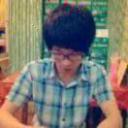Korean Scholar Regards China as His Second Home
时间:2022-09-10 03:00:12
Doctor Kim Jun-Yop (born in 1920) is a legend of the Republic of Korea. He is described in the media as a founding father of the country and the very national spiritual pillar. Academically, he has served as visiting professors at Harvard University, Princeton University, and Hawaii University; he has published various academic works; he was Korea’s deputy to the 16th, 17th and 20th UN assemblies. During World War II, he was the first Korean soldier who defected to the Korean Independence Movement in China and later became an assistant to the movement’s commanders. He was the president of a Korean university and protected students during domestic turmoil. He became high-profile political assets in Korea that leading president hopefuls wanted to win over and appoint to key positions. He turned down the nomination from General Roh Tae-woo to become Prime Minister of South Korea in 1990, preferring to stay in academia. The Korean media described him as the scholar of Confucian scholars.
Doctor Kim Jun-Yop regards China as his second motherland. He was born in 1920 into a family located near the China-Korea border and was the youngest of the four sons and a daughter. After his graduation from senior high school, he went to Japan for further studies and came back to Pyongyang in January, 1944. He was immediately conscripted by the Japanese army. At the bottom of his heart he was pleased because he knew he would have an opportunity to defect in China to the Korean Liberation Army in action in China. He bought a compass, a map of China and a textbook of Chinese dialogues before leaving for China. He was stationed in Xuzhou in northern Jiangsu Province. On March 29, he escaped, carrying three loaves of bread and a hand grenade. He joined a Chinese guerrilla group and on July 24, he began a 300-kilometer trek to Chongqing, China’s war-time capital where he joined the Korean Provisional Government headed by President Kim Koo. It was in Xin that Kim Jun-Yop met the daughter of the office administrator under Kim Koo. They got married later.
After Japan surrendered on August 15th, 1945, Kim Jun-Yop had come to the crossroads of his life. He had two choices. He could enter politics or he could study history in China and later return to Korea as a scholar. He chose academia as his lifelong goal.
Beginning in February 1946, he taught the Korean language for a living at the National Oriental Languages Institute. After the institute moved to Nanjing, he continued to teach Korean at the institute meanwhile studying the history of modern China as a graduate in the National Central University in Nanjing. In the summer of 1948 he accompanied four Chinese students to the Seoul University for further studies. After the Korean War broke out in 1950, he lost contact with two of his Chinese students in Korea. For decades, Kim felt guilty about losing the two Chinese students, thinking they were killed in the war. It was not until 1981 when he was paying a visit to Hawaii University that he learned from the Korea Research Institute at the university that Yang Tongfang, one of the two students, was still alive and was China’s leading scholar of Korean history. It turned out that Yang came back to China with the Chinese Volunteer Army and taught at the National Oriental Languages Institute until it was incorporated into Peking University. Yang is now the director of the oriental languages department of Peking University.
Doctor Kim Jun-Yop has helped more than 10 Chinese universities and the China Academy of Social Sciences set up research institutes for Korean studies. He has been instrumental in a Korean foundation setting up a permanent section for promoting exchanges between Korea and China. The Institute for Korean Studies at Zhejiang University came into being 15 years ago with a special fund from Korea’s Daewoo Group. Professor Chun Hae-jong, a friend of Doctor Kim Jun-Yop, donated all his reference books for research to the institute. Following the suggestion of Kim, the institute in Hangzhou has focused its research on the historical sites within Zhejiang Province in association with the Korean Peninsular. Doctor Kim Jun-Yop has helped in locating and restoring the site of the Korean Provisional Government in Hangzhou. The site was turned into a memorial in 2007. Doctor Kim has visited the site.
For promoting the China-Korea friendship, Doctor Kim Jun-Yop has visited China 66 times. In recognition of his brilliant contribution to the cultural exchanges between the two countries, Kim has been awarded the Friendship Award of Language and Culture by the Ministry of Education. Kim is the second foreigner honored with this title after Thai Princess Sirindhorn.
上一篇:A Dream Chaser’s Toughness 下一篇:Asia’s Largest Reclining Buddha in a Grott...
文档上传者
热门推荐 更多>
- 1Bulletin Of The Korean Mathematical So...
- 2Korean Circulation Journal
- 3Journal Of The Korean Mathematical Soc...
- 4Korean Journal Of Internal Medicine
- 5Journal Of Korean Medical Science
- 6Korean Journal Of Radiology
- 7Journal Of The Korean Astronomical Soc...
- 8Korean Journal Of Orthodontics
- 9Journal Of Korean Academy Of Nursing
- 10Korean Journal Of Chemical Engineering
